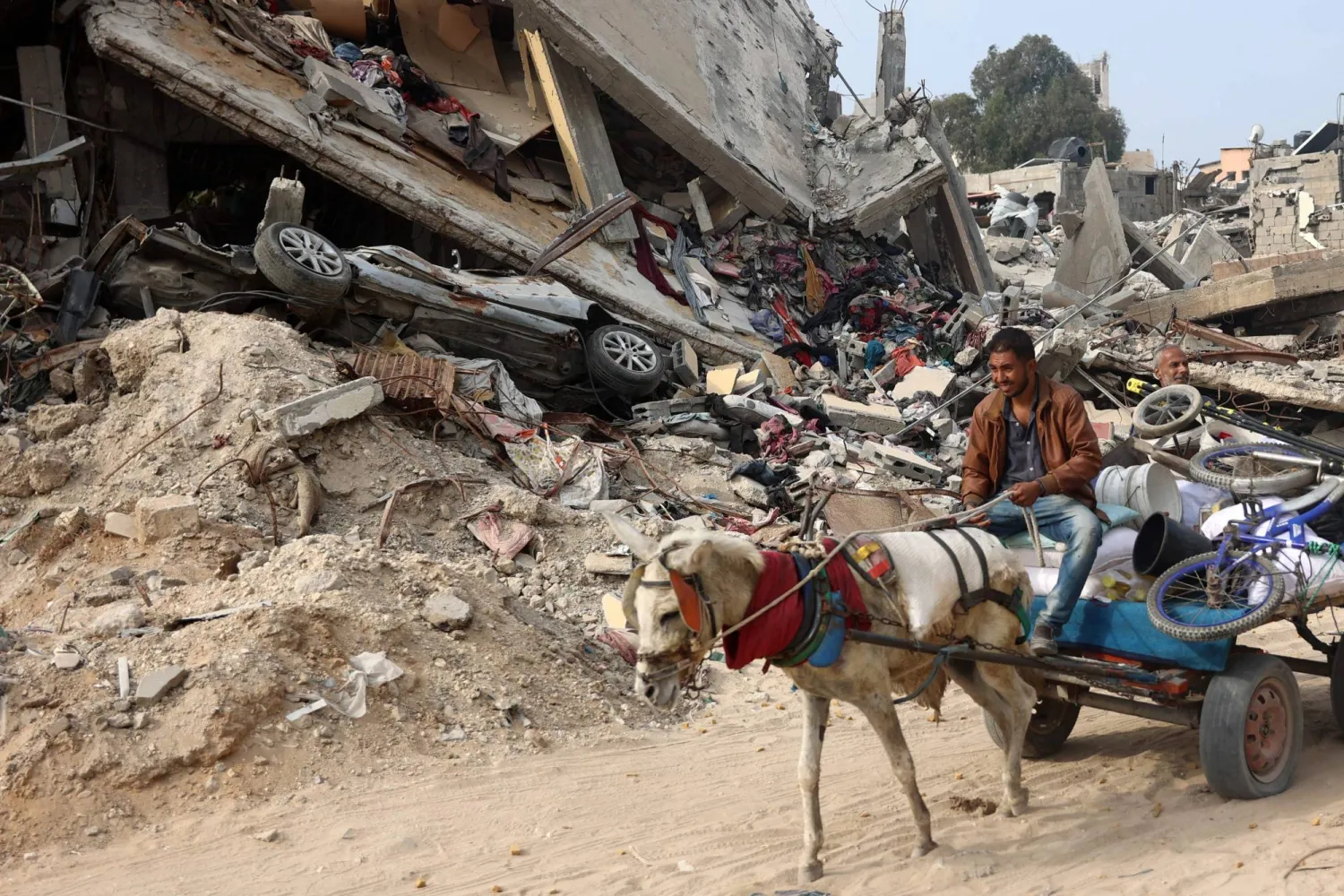Israeli forces stepped up bombardment of the Gaza Strip on Sunday killing at least 23 people, Palestinian medics said, with over half the deaths in northern areas where the army has waged a month-long campaign it says is to prevent Hamas from regrouping.
Palestinians said the new aerial and ground offensives and forced evacuations were “ethnic cleansing” aimed at emptying two north Gaza towns and a camp of their populations to create buffer zones. Israel denies this, saying it is fighting Hamas militants who launch attacks from there.
Medics said at least 13 Palestinians were killed in separate attacks on houses in Beit Lahiya town and Jabalia, the largest of the enclave's eight historic refugee camps and the focus of the army's new military offensive. The rest were killed in separate Israeli air strikes in Gaza City and the southern areas, Reuters reported.
Israel has not commented on its military actions on Sunday in northern Gaza.
On Saturday, the Israeli military sent a new army division to Jabalia to join two other operating battalions, a statement said. It said that hundreds of Palestinian militants have so far been killed in the "battles" since the raid began on Oct. 5.
Meanwhile, COGAT, the Israeli army's Palestinian civilian affairs agency, said it facilitated the launch of the second round of a polio vaccination campaign in northern Gaza on Saturday and that 58,604 children have received a dose.
The Gaza health ministry said Israel's military offensive in northern Gaza was stopping them from vaccinating thousands of children in Jabalia, Beit Lahiya, and Beit Hanoun.
It said one clinic came under Israeli fire while parents brought their children for the anti-polio dose on Saturday, where four children were injured.
The head World Health Organization said in a statement the incident took place despite a humanitarian pause agreed upon by the two warring parties, Israel and Hamas, to allow the vaccination campaign.
"A @WHO team was at the site just before. This attack, during humanitarian pause, jeopardizes the sanctity of health protection for children and may deter parents from bringing their children for vaccination," Director-General Tedros Adhanom Ghebreyesus said in a post on X on Saturday.
"These vital humanitarian-area-specific pauses must be absolutely respected. Ceasefire!," he said.
The Israeli military has not commented on Tedros' remarks.
A larger ceasefire that would end the war and see the release of Israeli and foreign hostages held captive in Gaza as well as Palestinians jailed by Israel remains remote due to disagreements between Hamas and Israel.
Hamas wants an agreement to end the war permanently, refusing recent offers for temporary truces, while Israeli Prime Minister Benjamin Netanyahu says war can only end when Hamas is eradicated.
Israeli Attacks Kill 23 People in Gaza

A Palestinian man rides a horse-pulled cart, next to a destroyed building where personal belongings of people and a car are sandwiched between the layers of its rubble, in Gaza City on November 2, 2024, amid the ongoing war between Israel and Hamas. (Photo by Omar AL-QATTAA / AFP)

Israeli Attacks Kill 23 People in Gaza

A Palestinian man rides a horse-pulled cart, next to a destroyed building where personal belongings of people and a car are sandwiched between the layers of its rubble, in Gaza City on November 2, 2024, amid the ongoing war between Israel and Hamas. (Photo by Omar AL-QATTAA / AFP)
لم تشترك بعد
انشئ حساباً خاصاً بك لتحصل على أخبار مخصصة لك ولتتمتع بخاصية حفظ المقالات وتتلقى نشراتنا البريدية المتنوعة







